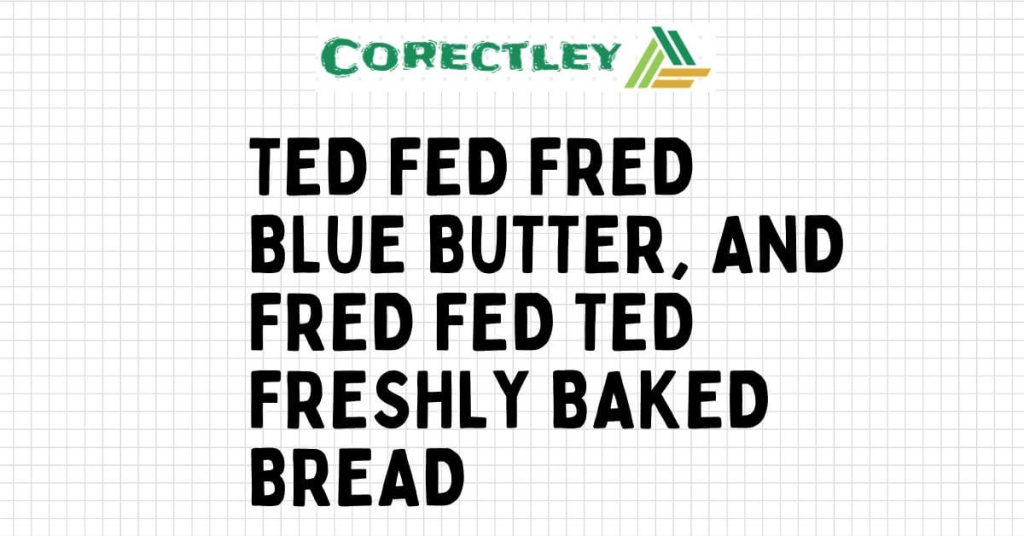How Now Brown Cow is an expression that is utilized in helping rhetoric to show round vowel sounds.
The articulation has no proper importance to it. Very much like most tongue twisters, it has no exacting importance. The expression is frequently utilized by persons who train in English discourse and address to exhibit the way to express adjusted vowel sounds.
The ‘ow’ in the expression is intended to address the diphthong displayed as/aʊ/. This expression is very simple to recall by youngsters and English language students since it rhymes.
The beginning of this expression isn’t all that reasonable. The expression ‘How Now Brown Cow’ is for the most part utilized in Scotland to depict a barrel of brew in the eighteenth hundred years. persons respect the expression ‘how presently earthy colored cow’ is viewed as a hogwash expression.
It’s an expression with no genuine significance, however here and there, it can be utilized as a happy hello to persons. Although frequently recited, this expression is frequently misunderstood.
It has no exacting importance as it is utilized or fills in as a training help to help in the learning of formal discourse. This is because the redundancy and outlandishness of this expression make it a compelling apparatus for learning.
A portion of the expressions like ‘How now brown cow’ is; ‘ Who jars a can like a canner jar a can?’, ‘ Peter Flute player picked a peck of cured peppers’, and ‘How much wood could a woodchuck hurl if a woodchuck could throw wood?’

15 Phrases Like How Now Brown Cow
1. Who Cans A Can Like A Canner Cans A Can?
This expression is a tongue twister. Someone who cans food is called a canner. Although he can do anything, a canner cannot. He can protect things in a holder. It is an intriguing tongue twister.
To comprehend the importance of this, you need to initially perceive the thing which is canner, and what he does which is to can natural products or vegetables.
So ‘Could you can a can’ signifies might you at any point safeguard food in a can; ‘ as a canner’ alludes to the person that saves the food; ‘ can a can’ or ‘as a canner can a can’ alludes to an up a person can and seals it.
To put it another way, it means to insert one can into another.
2. A pricey peck of pickled peppers was picked by prissy Peter Piper
This is a nursery rhyme. A peck is supposed to be an early English weight estimation. A cured pepper is known to be Capsicum pepper saved by pickling it.
Peter Flautist is known to be a mental mistake that persons make, by which they will more often than not confound two words that look like each other, generally when the primary letter (s) is something very similar.
This implies that Peter Piper was a lazy worker who claimed to have picked more peppers than he had. The peppers were cured implying that he might have taken them.
3. If a woodchuck will chuck wood, how much wood will the woodchuck chuck?
This is another tongue twister. A woodchuck is a creature, a sort of marmot that is provincially called a ‘groundhog’. It is a little rat. Hurl means to toss or throw to the side. This expression has no strict importance.
This expression is attempting to say that on the off chance that a groundhog fosters an expertise to hurl wood around the spot, how much wood might he at some point toss?
While digging their burrows, woodchucks do not scatter wood, but they do scatter dirt. There is no exacting importance to this assertion.
This articulation asks how much wood a groundhog could toss if he figured out how to hurl bits of wood about.
During the method involved with recovering their tunnels, woodchucks pitch soil as opposed to wood.
4. She Sells Seashells By The Seashore
Another fun gag with a real story behind it is this one. About a genuine shell dealer who lived in Dorset and generally gathered shells and fossils from the ocean side.
She for the most part offers them to earn enough to pay the bills and could likewise recognize every one of the different animal groups. It is just Similar sounding word usage. This alludes to a reiteration of starting consonant sounds in the expressions of a sentence or a line of verse.
This is a melody that is intended to be a recognition of ‘Mary Anning’ the shell dealer. One more tongue-twister with a genuine premise is this one.
It recounts the tale of a Dorset occupant who sold shells and much of the time went beachcombing for fossils and shells.
She can identify every species and typically makes a living by selling them.
5. If a dog must chew shoes, whose shoes should he choose?
This is an entertaining tongue twister like that of the woodchuck. It’s just whose shoe a canine picks or picks if he bites a person’s shoes. This tongue twister likewise finishes as an inquiry.
This tongue twister is entertaining, like the woodchucks. If a canine chooses to bite on a person’s shoes, the inquiry is essentially which shoe will he pick or pick.
This tongue-twister finishes up with a question.
6. Who lights a nightlight on a night as bright as tonight?
A night light is a light that isn’t brilliant and can be left on as the night progresses. It is primarily used by children in their bedrooms.
Because this night is already light, this phrase indicates that you do not need to light or turn on a nightlight. It intends that since the night has a touch of light, there would be no point in putting on the night light.
This tongue twister has a comparative sound and it is a similar sounding word usage. A night light is a light that doesn’t shine too brightly and can be left on all night. Most of the time, kids use it in their room.
This articulation recommends that you are not expected to turn on or light a nightlight because there is as of now light in the evening.
It proposes that turning on the night light would be superfluous because there is some light in the evening. This tongue twister is a similar sounding word usage and has a comparable sound.
7. Fresh French fried fly fritters
Waste is a little cake made of a hitter which frequently contains a natural product, vegetables, or fish i.e broiled. It is additionally a similar sounding word usage as it has the reiteration of the underlying consonant sound/f/.
8. I slit a sheet, and on a slit sheet was the sheet I slit
A slit is a long, narrow cut made in something. The/sh/sound is tracked down in the expression. To cut a sheet means to make a straight lengthy cut on something. ‘ I cut the sheet’ signifies you cut something.
‘The sheet I cut’ alludes to what you cut i.e. the sheet or the specific sheet. ‘ What’s more, on the cut sheet I cut’ signifies you cut the generally cut sheet or the sheet you recently cut.
9. Ted fed Fred blue butter, and Fred fed Ted freshly baked bread

This tongue twister is not difficult to decipher. It implies that Fred took care of bread for Ted and Ted took care of Fred’s bread. It simply implies that one person gave bread to another and on the other hand, the person gave bread too to the main person.
10. With picks and sticks, six sick hicks break the six sleek bricks
This expression includes the utilization of the/s/and/k/sounds. Hicks implies a straightforward person that is from a modest community or country. The expression alludes to six of them, i.e. Hicks.
To Scratch means to give a little cut or a scratch. The expression implies that six debilitated persons from a humble community cut six blocks utilizing a stick and pick.
11. A Happy Hippo Hopped And Hiccupped
This expression suggests that a blissful hippo bounced and wailed. This expression recommends first that there is a cheerful hippo and the following thing he did was to bounce, in the wake of hopping he hiccupped or wailed.
This is likewise similar sounding word usage as it includes the/h/sound. This articulation recommends that a happy hippo jumped and sobbed.
This articulation infers that a blissful hippo was at first present, that he then hopped, and that following his leap, he hiccuped or sobbed.
12. Selfish Shellfish
A person who acts in a self-centered manner is referred to as a shellfish person. The person is just worried about his benefit and interest.
A ‘narrow-minded shellfish’ is a person who ponders himself and himself alone. A self-centered person frequently uses it.
At the point when somebody is known as an ‘egotistical shellfish’ the person is viewed or seen as insatiable or narrow-minded somebody, he is viewed as somebody after just himself and no other person.
One who acts egotistically is referred to as a ‘shellfish person.’ The person exclusively has their inclinations and advantages as a top priority.
One who simply sees oneself as or herself is alluded to as a ‘childish shellfish.’ It’s often used to portray somebody as egotistical.
At the point when somebody is portrayed as a ‘self-centered shellfish,’ it suggests that they are prideful or self-centered, watching out solely for themselves.
13. All great Greek grape growers must grow giant Greek grapes
This expression utilizes similar-sounding word usage as it includes the consonant sound/. The understanding of this expression is that there’s an incredible grape cultivator, and this grape producer develops decent or extraordinary Greek grapes.
The significance of this articulation is that there is a brilliant grape cultivator who produces pleasant or extraordinary Greek grapes.
The person names “Great Greek Grapes” and “Great Greek Grape Grower” are included in the phrase.
14. Top Chopstick Shops Stocks Up
A pair of slender sticks held between the thumb and fingers is called a chopstick. Most countries in Asia use chopsticks. Getting different food is utilized.
This expression could be perceived to imply that the top chopstick shops have loaded up. They have gotten an adequate number of chopsticks for purchasers.
This suggests that the chopstick shops have chopsticks in enormous amounts.
15. Which Witch Switched The Swiss Wristwatches?
Three witches are the subject of this tongue-in-cheek tale. This tongue twister comes as an inquiry. It tends to be perceived to imply that somebody is asking which witch among the witches changed the Swiss wristwatch.
This suggests that there is a specific witch who took a specific wristwatch. It likewise expresses that the wristwatch is a Swiss wristwatch. There are three witches referenced in this tongue twister as per the sonnet.
This tongue-twister starts with an inquiry. The question of which witch among the witches replaced the Swiss watch is one possible interpretation.
This recommends that a specific witch took a specific wristwatch. The watch is likewise distinguished as a Swiss watch.
Conclusion
The expression ‘How now brown cow’ shows oration and it is utilized in exhibiting round vowel sounds. There is no predetermined meaning attached to this expression.
This article has inspected 15 expressions that are like this. Some of these expressions are regarded as tongue twisters, and the majority of the time, they lack a literal meaning.